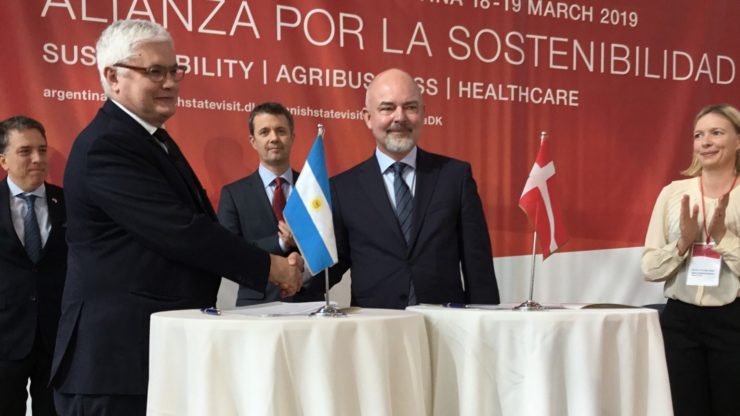Over the next three years, UNEP DTU Partnership will be working on a new project aimed at consolidating the district energy market in Chile.
The project aims at scaling-up investment on district energy by developing an enabling framework and establishing mechanisms to support project developments and will contribute to reducing local pollution and emissions in cities, reduce primary energy consumption, as well as increase health and resilience for the country’s population.
The 3-year project, named “Accelerating investment in efficient and renewable district energy systems in Chile”, will contribute to the country’s climate goals while at the same time putting Chile on the path to rebuilding back better and greener in the aftermath of the current health and economic crisis.
UNEP DTU Partnership will provide technical assistance through the District Energy in Cities Initiative. The project is implemented by UN Environment Programme (UNEP) and will be executed by the Chilean Ministry of Energy. The Global Environment Facility is financing the USD 2 million project.
Technical support to reach the potential
Implementing solutions for district heating and cooling is not only an effective way of contributing to the emissions reductions required if we are to achieve the global climate goals laid out in the Paris Agreement, district energy also helps lower the levels of air pollution improving public health.
“District Energy is already part of the NDC of Chile, as a means towards clean air and sustainable heating, in a country heavily affected by local contamination because of heating demand. UNEP DTU Partnership has been providing technical support to the country for the last 3 years with the critical help of the Bitten & Mads Clausen’s Foundation and in collaboration with UN Environment Programme, the Chilean Ministry of Energy and local authorities,” says Gabriela Prata Dias, Head of strategy for Business Models and Markets at UNEP DTU Partnership.
Studies conducted by Chile and UNEP have shown that the adoption of district energy systems in the country has the potential to reduce local concentrations of particulate pollution by approximately 99% in the areas where district energy is applied. This could result in nearly USD 2,500 million in public health savings and approximately 2,800 lives saved annually.
Tailored training and experiences from a global network
For the first step of the new project, UNEP DTU Partnership has started specifically tailored training sessions for Chilean stakeholders. The first session has already been concluded, with several more in the pipeline. Additionally, UNEP DTU Partnership will be sharing best practices and experiences from our work with district heating all over the world and our network of countries and cities currently working on similar projects.
Parallel to the work on this new project, UNEP DTU Partnership also continues work in Chile on public tendering of district energy, and assessments of the possibilities of district energy using a rapid assessment tool developed by the partnership.
A regional lighthouse
District energy could allow for a 13% reduction in the total primary energy consumption and a 20% reduction of CO2 emissions in Chile compared to alternative scenarios. This is according to “Heat Roadmap Chile”, a study developed by the District Energy in Cities Initiative in collaboration with Aalborg University. The study highlights that district energy could cover around 40% of the heating market by 2050 without bringing additional costs to consumers.
The potential of district heating marks the country’s need to develop frameworks and markets conducive to supporting the implementation of technologies and infrastructure. This GEF project is a crucial first step in this direction, as it provides for the establishment of a National District Energy Office, as well as collaboration on demonstration projects, the design of a regulatory framework and capacity building.
“Chile is becoming a regional lighthouse on district energy at all levels, on policy, training, and project implementation. The fact that GEF devotes financial support for the second time to the work in Chile, supporting developments on district energy in 10 new cities, recognizes the quality of previous work and the country’s opportunity to be a driver of change,” Gabriela Prata Dias points out.
District energy at a glance
District energy systems create synergies between the supply and demand of heating, cooling, domestic hot water and electricity and can be integrated with other municipal services such as sanitation, sewage treatment, transport and waste, meaning that heating and cooling can be low-carbon and energy-efficient, maximizing the integration of local renewable resources.
This makes district energy a key measure for cities and countries with ambitious emission reduction targets and renewable energy use.
UNEP DTU Partnership’s work on district energy is rooted in the District energy in cities initiative.
The initiative is one of six accelerators of the Sustainable Energy for All (SEforALL) Energy Efficiency Hub, hosted by the UNEP DTU Partnership’s Copenhagen Centre on Energy Efficiency.
The Initiative and the Copenhagen Centre on Energy Efficiency aims to double the rate of energy efficiency improvements for heating and cooling in buildings by 2030, helping countries meet their climate and sustainable development targets.




